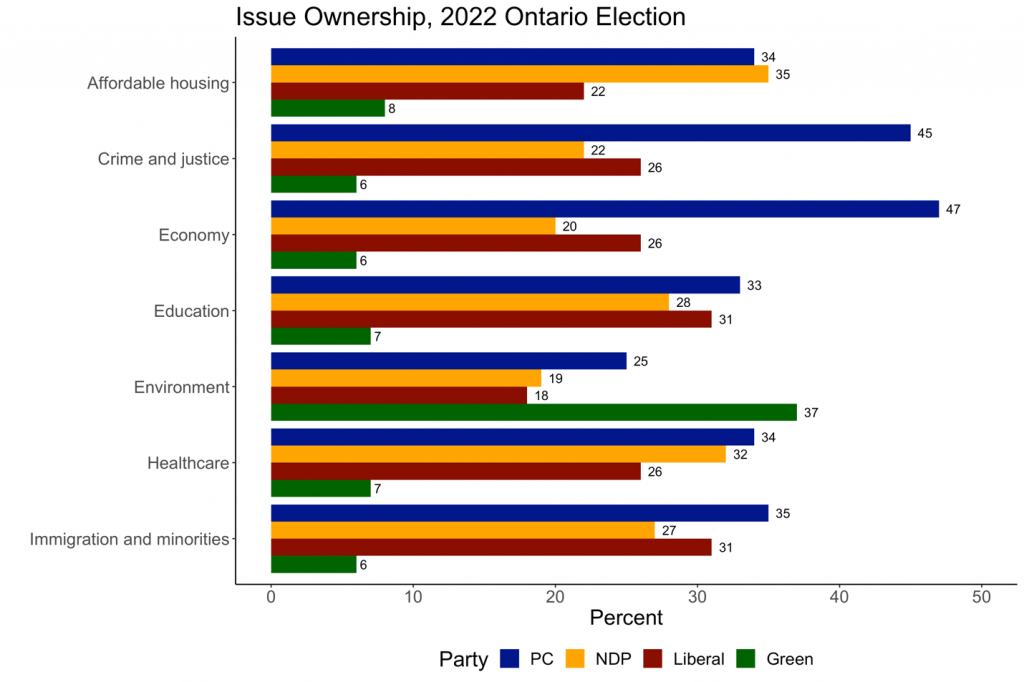By Simon J. Kiss, Jason Roy and Matthew R. Arp
One of the more important dynamics of modern elections is the phenomenon of the “ballot question”. Parties, journalists and voters wrangle over what an election is “about”. The reason so much is at stake in this question is because voters usually think that parties are best at handling some issues, but not others. This is known as the phenomenon of “issue ownership” (Petrocik, 1996). Parties come to “own issues” partly through their record in office, partly as a part of ideological positions. It’s a fairly widespread phenomenon that right-wing parties are best at issues of finance and security, while left-wing parties are better at dealing with issues such as social programs and the environment (Benoit & Hansen, 2004). Given these perceptions, “owning” the most salient election issue is key to electoral success, For example, in Canada, Belanger and Nadeau (2015) found that voters’ perception of who was best at managing the economy was an important and stable predictor of vote choice from 1988 to 2011.
In LISPOP’s survey of Ontario voters during the 2022 provincial election, we asked voters standard questions about which party they thought was best at handling a series of issues. Previous work has typically shown a mixed response, with issue ownership split across parties, depending on the issue. This was not the case for the 2022 Ontario provincial election, as shown in the graph below.

Based on our findings, the Ontario Progressive Conservatives were clearly favoured as the party best able to deal with the vast majority of issues (five out of seven). Of the two issues where the Ontario PCs did not take first spot, they were second, with only a one percentage point difference between the PCs and the leading NDP on affordable housing. It is not surprising that the Greens were considered best at handling the environment.
How can we explain public perception of the strength of the PCs across the range of election issues? It may be a genuine reflection of public opinion that the incumbent PC government had been competent, effectively managing the province throughout a difficult time given the challenges of governing during a global pandemic. These results may also reflect the perceived weakness of the opposition parties that struggled to win votes and mobilize voters. This latter point is reflected in the historically low voter turnout for the 2022 Ontario provincial election, a mere 43% of eligible voters.
What remains to be seen is whether these findings will hold as the Ontario PCs enter their second term with increasing public discourse and discontent towards many of the issue the PCs were considered strongest at handling.
References
Bélanger, É., & Nadeau, R. (2015). Issue ownership of the economy: Cross-time effects on vote choice. West European Politics, 38(4), 909-932.
Benoit, W. L., & Hansen, G. J. (2004). Presidential debate watching, issue knowledge, character evaluation, and vote choice. Human communication research, 30(1), 121-144.
Petrocik, J. R. (1996). Issue ownership in presidential elections, with a 1980 case study. American journal of political science, 825-850.
Wright, J. M., Clifford, S., & Simas, E. N. (2022). The Limits of Issue Ownership in a Polarized Era. American Politics Research, 1532673X221106435.
